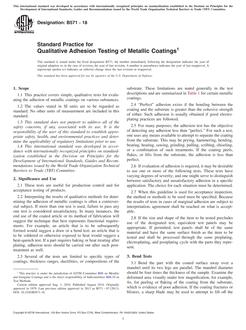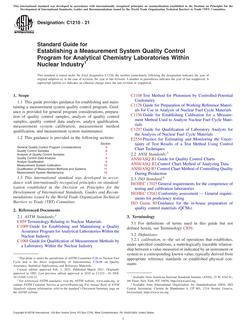1.1 This guide covers an integrated, stepwise method for the qualitative conceptualization and quantitative characterization of ground-water flow systems, including the unsaturated zone, for natural or human-induced behavior or changes.
1.2 This guide may be used at any scale of investigation, including site-specific, subregional, and regional applications.
1.3 This guide describes an iterative process for developing multiple working hypotheses for characterizing ground-water flow systems. This process aims at reducing uncertainty with respect to conceptual models, observation, interpretation, and analysis in terms of hypothesis and refinement of the most likely conceptual model of the ground-water flow system. The process is also aimed at reducing the range of realistic values for parameters identified during the characterization process. This guide does not address the quantitative uncertainty associated with specific methods of hydrogeologic and ground-water system characterization and quantification, for example, the effects of well construction on water-level measurement.
1.4 This guide addresses the general procedure, types of data needed, and references that enable the investigator to complete the process of analysis and interpretation of each data type with respect to geohydrologic processes and hydrogeologic framework. This guide recommends the groups of data and analysis to be used during each step of the conceptualization process.
1.5 This guide does not address the specific methods for characterizing hydrogeologic and ground-water system properties.
1.6 This guide does not address model selection, design, or attribution for use in the process of ground-water flow system characterization and quantification. This guide does not address the process of model schematization, including the simplification of hydrologic systems and the representation of hydrogeologic parameters in models.
1.7 This guide does not address special considerations required for characterization of karst and fractured rock terrain. In such hydrogeologic settings, refer to Quinlan (1) and Guide D 5717 for additional guidance.
1.8 This guide does not address special considerations regarding the source, fate, and movement of chemicals in the subsurface.
1.9 This standard does not purport to address all of the safety concerns, if any, associated with its use. It is the responsibility of the user of this standard to establish appropriate safety and health practices and determine the applicability of regulatory limitations prior to use.
1.10 This guide offers an organized collection of information or a series of options and does not recommend a specific course of action. This document cannot replace education or experience and should be used in conjunction with professional judgment. Not all aspects of this guide may be applicable in all circumstances. This ASTM standard is not intended to represent or replace the standard of care by which the adequacy of a given professional service must be judged, nor should this document be applied without consideration of a project’s many unique aspects. The word “Standard” in the title of this document means only that the document has been approved through the ASTM consensus process.
Product Details
- Published:
- 01/01/2002
- Number of Pages:
- 7
- File Size:
- 1 file , 55 KB
- Part of:
- ASTM Standards Related to the Phase II Environmental Site Assessment Process, Second Edition


